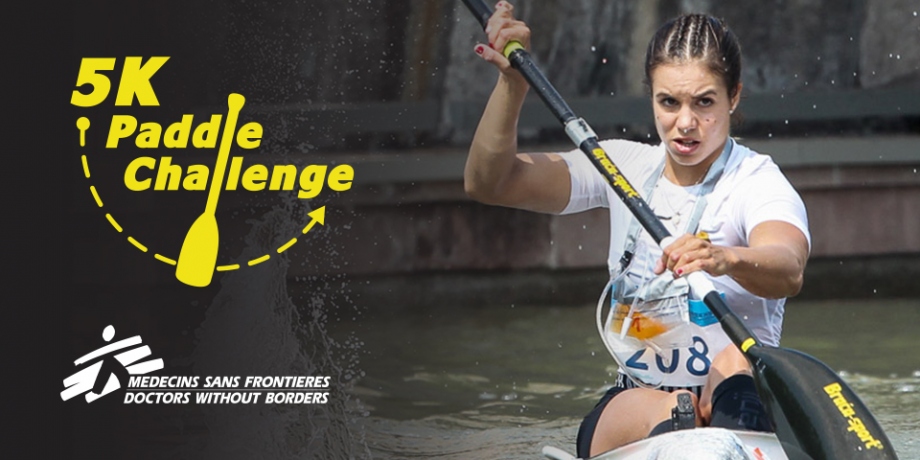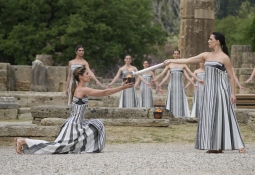72-year-old Johan Dreyer began a six-year canoeing career at the age of 40 as an incentive to give up smoking, then took a 24-year paddling break before being coaxed back at the age of 70 with the goal of winning Australian Masters events.
Not only was the comeback successful, but the Western Australian soon found himself devoting more and more time to his passion. He was one of the first people to register for the ICF/MSF 5k paddle challenge, and this week is our lucky prize winner.
Since returning to the water Dreyer has been making up for lost time. He began paddling back in 1988 because it seemed like a fun way to get healthy.
“It was mainly to do some form of exercise and it seemed the most interesting way to do it,” Dreyer said.
“I loved exploring the waterways from the start. Then I joined a club and entered some races and that helped me to stop smoking. I loved the competition and the camaraderie between young and old.”
But unfortunately business commitments soon found Dreyer spending less time training, and after six years of competition he found he could no longer make the sacrifices he needed if he wanted to keep racing. He’d won the titles he wanted, so felt there was nothing left to prove.
But as most canoe enthusiasts will tell you, the sport never leaves you. The pull of the water is hard to ignore. When friends came knocking in 2018, inviting Dreyer to enter the 2019 Australian canoe marathon and sprint titles in Perth, he didn’t need to think about it.
Before he knew it, he was back on the water in Mandurah, south of Perth, and everything clicked back into place.
“It did not take long for the old competitive spirit to flare up again and to start spending big bucks on current boats and gear,” Dreyer said.
Dreyer is a great advocate for having a regular exercise regime no matter what your age. He is urging other Masters athletes around the world to register for the ICF/MSF 5k paddle challenge because, as he says, there are few more relaxing and interesting pastimes than paddling a canoe or kayak.
“It is an easy pass-time, in a stable boat, sitting down, no stress on your joints by jarring movements,” he said.
It did not take long for the old competitive spirit to flare up again and to start spending big bucks on current boats and gear
“There are so many interesting places you can visit on the waterways by paddling. It is a great exercise for your health and well-being, you get close to nature to see the waterbirds in their habitat, and in some areas you get dolphins around you.
“There are many over-55's paddling clubs who regularly meet weekly. They may have sandwiches on a remote island or socialise in other interesting ways. You can compete, if you like, against others in your age group. Show the grand children your medals. Make new goals.”
And while the great majority of older paddlers take up the sport as a way to keep healthy and fit, and to socialize, Dreyer points out part of the fun is upstaging the younger athletes.
Being a good paddler, he says, doesn’t necessarily mean being the strongest.
“You can be faster than a stronger, younger paddler just by having a better technique,” he said.
“In marathons older people have stamina and a mind to work through fatigue. So you can be competitive even against younger paddlers
“And in this sport you can choose between many paddling disciplines like canoeing, kayaking, SUPS, ski's, sea kayaks, slalom, white-water, canoe polo, plastics, etc.”
All disciplines are welcome and encouraged to participate in the ICF/MSF 5k paddle challenge. The ICF is proud to be partnering MSF for the project. The charity is deploying medics, sending supplies and applying nearly 50 years of experience fighting epidemics to protect the most vulnerable and save lives during the coronavirus.
The one-person challenge can be carried out on any form of ergo, or for those lucky enough to be able to get on the water, on any form of craft officially recognised by the ICF.
There are two important stipulations; all participants must follow the rules in their own country to help prevent the spread of the virus, and each paddler must be able to accurately measure their distance and time.
Each paddler will be required to post details of their performance on the event page, and will then be able to measure their result against other paddlers around the world. To make it even more exciting, participants are encouraged to challenge their friends and colleagues to take up the cause.
It doesn’t matter if the five kilometres are completed at a home gym, a nearby lake, a river or on the ocean. The ICF is emphasising that people should only paddle outside where it is safe to do so, and where it is permitted by their local authorities.
Find more information about our 5k challenge here, and about the work Doctors without Borders (MSF) is doing around the world here.
You can enter the challenge here.


